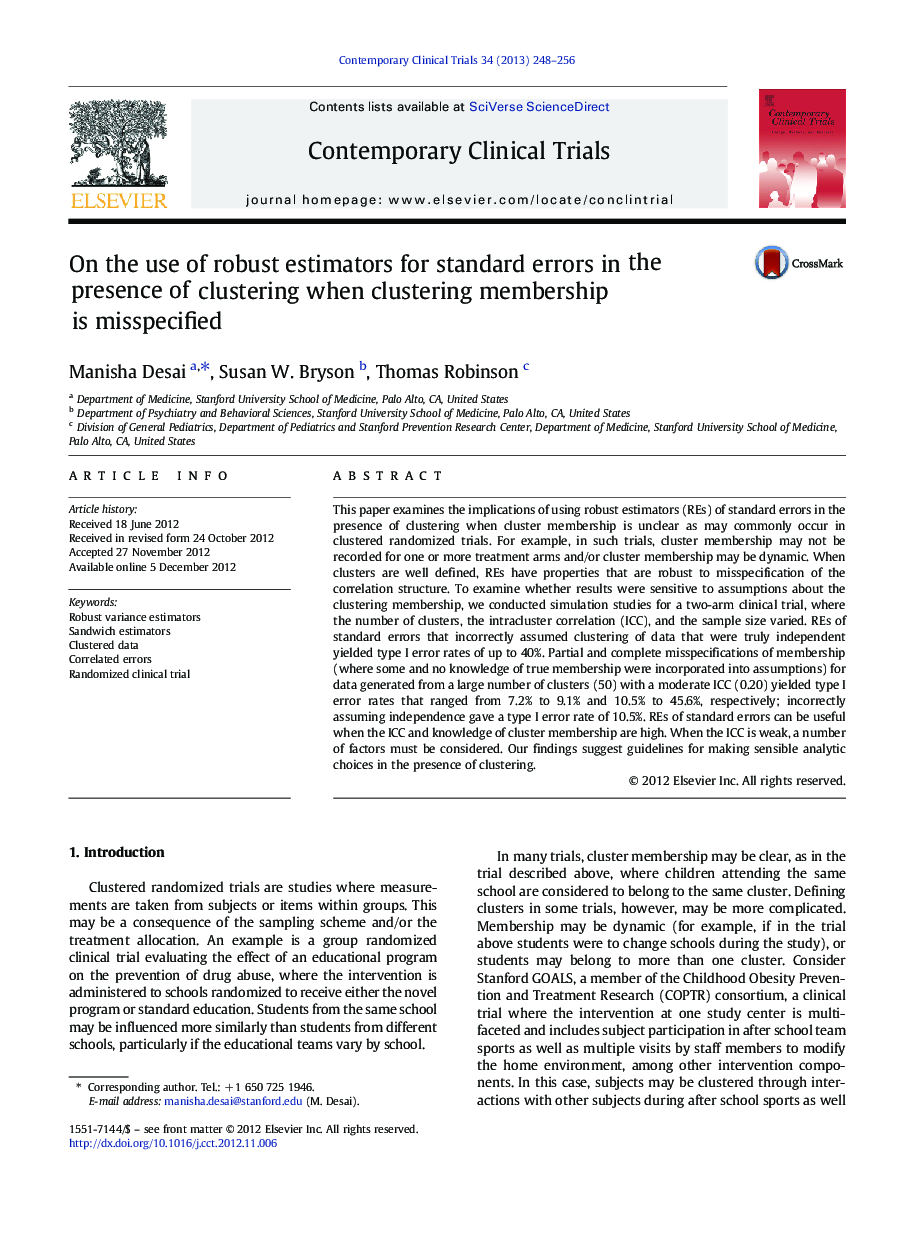| Article ID | Journal | Published Year | Pages | File Type |
|---|---|---|---|---|
| 3462685 | Contemporary Clinical Trials | 2013 | 9 Pages |
This paper examines the implications of using robust estimators (REs) of standard errors in the presence of clustering when cluster membership is unclear as may commonly occur in clustered randomized trials. For example, in such trials, cluster membership may not be recorded for one or more treatment arms and/or cluster membership may be dynamic. When clusters are well defined, REs have properties that are robust to misspecification of the correlation structure. To examine whether results were sensitive to assumptions about the clustering membership, we conducted simulation studies for a two-arm clinical trial, where the number of clusters, the intracluster correlation (ICC), and the sample size varied. REs of standard errors that incorrectly assumed clustering of data that were truly independent yielded type I error rates of up to 40%. Partial and complete misspecifications of membership (where some and no knowledge of true membership were incorporated into assumptions) for data generated from a large number of clusters (50) with a moderate ICC (0.20) yielded type I error rates that ranged from 7.2% to 9.1% and 10.5% to 45.6%, respectively; incorrectly assuming independence gave a type I error rate of 10.5%. REs of standard errors can be useful when the ICC and knowledge of cluster membership are high. When the ICC is weak, a number of factors must be considered. Our findings suggest guidelines for making sensible analytic choices in the presence of clustering.
